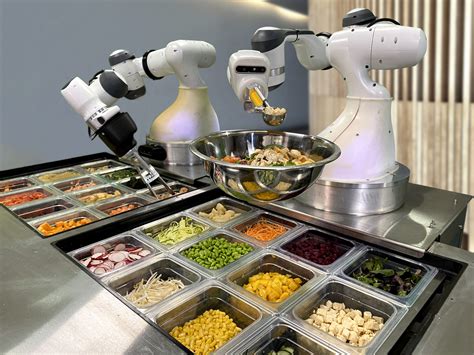The culinary scene in New York is known for its diverse and vibrant flavors, with a wide range of cuisines and dining experiences available to suit every taste and budget. However, with the rise of technology and innovation, the food industry is undergoing a significant transformation, and New York is at the forefront of this change.

The future of food-tech innovations is redefining the way we produce, consume, and interact with food. From vertical farming to personalized nutrition, and from lab-grown meat to robotic cooking, the possibilities are endless. In this article, we will explore some of the most exciting food-tech innovations that are set to revolutionize the culinary scene in New York.
Vertical Farming
Vertical farming is a method of growing plants in vertically stacked layers, often in indoor environments. This technique allows for maximum yield in minimal space, making it an attractive solution for urban areas like New York. By using LED grow lights, hydroponics, and aeroponics, vertical farms can produce a wide range of crops, from leafy greens to herbs and even flowers.

Companies like AeroFarms and Bright Agrotech are already making waves in the vertical farming industry. AeroFarms, for example, has developed a patented growing system that uses aeroponics and LED lighting to produce high-quality crops. Their farm in Newark, New Jersey, is one of the largest vertical farms in the world, producing over 2 million pounds of produce per year.
Personalized Nutrition
With the rise of wellness and self-care, people are becoming more interested in personalized nutrition. Food-tech companies like Habit and PlateJoy are using DNA testing, machine learning, and data analytics to provide personalized nutrition recommendations.

Habit, for example, uses DNA testing to identify genetic markers that affect how our bodies respond to different nutrients. Based on this information, they provide personalized recommendations for diet and lifestyle changes. PlateJoy takes a similar approach, using machine learning algorithms to analyze data from wearables, health trackers, and food diaries to provide tailored nutrition plans.
Lab-Grown Meat
Lab-grown meat, also known as clean meat, is a type of meat that is produced by culturing animal cells in a laboratory rather than raising and slaughtering animals. This method of production reduces the environmental impact of traditional animal agriculture and offers a more humane alternative to meat production.

Companies like Memphis Meats and Mosa Meat are already producing lab-grown meat products. Memphis Meats, for example, has developed a range of products, including beef, chicken, and duck, using a proprietary cell-culturing process.
Robotic Cooking
Robotic cooking is a new trend in food-tech that involves using robots to prepare and cook meals. This technology has the potential to revolutionize the food industry, from fast food to fine dining.

Companies like Moley Robotics and RoboChef are already developing robotic cooking systems. Moley Robotics, for example, has developed a robotic kitchen that can prepare complex meals with ease. Their system uses a combination of robotic arms, cooking stations, and artificial intelligence to produce high-quality meals.
Food Waste Reduction
Food waste is a significant problem in the food industry, with an estimated 30-40% of food produced globally being lost or wasted. Food-tech companies like Full Harvest and Imperfect Produce are working to reduce food waste by developing innovative solutions.

Full Harvest, for example, has developed a platform that connects farmers with food manufacturers and retailers to reduce food waste. Their system uses data analytics and machine learning to identify surplus produce and match it with buyers.
Gallery of Food-Tech Innovations






FAQs
What is vertical farming?
+Vertical farming is a method of growing plants in vertically stacked layers, often in indoor environments. This technique allows for maximum yield in minimal space, making it an attractive solution for urban areas.
How does personalized nutrition work?
+Personalized nutrition involves using DNA testing, machine learning, and data analytics to provide tailored nutrition recommendations. This approach takes into account an individual's genetic markers, lifestyle, and health goals to provide personalized advice.
What is lab-grown meat?
+Lab-grown meat, also known as clean meat, is a type of meat that is produced by culturing animal cells in a laboratory rather than raising and slaughtering animals. This method of production reduces the environmental impact of traditional animal agriculture and offers a more humane alternative to meat production.
In conclusion, the future of food-tech innovations is redefining the culinary scene in New York. From vertical farming to personalized nutrition, and from lab-grown meat to robotic cooking, these technologies have the potential to revolutionize the way we produce, consume, and interact with food. As these innovations continue to emerge and evolve, it will be exciting to see how they shape the food industry and impact our daily lives.
